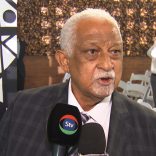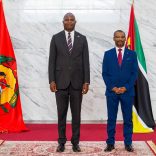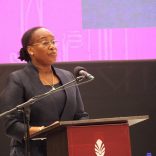Former president of the Mozambican Constitutional Council criticizes partisanship of bodies
United Nations prepares visit to Mozambican refugees region of origin

The UN has asked the Mozambican government to facilitate a visit to Tete province, home of the approximately 10,000 Mozambican refugees in Malawi, in the midst of a crisis that could worsen as a result of drought ravaging the southern and central parts of Mozambique.
“It is very likely that we will visit,” permanent coordinator of the UN in Maputo Marcia de Castro told Lusa in an interview about the situation of the Mozambicans refugees allegedly fleeing Tete province as a result of clashes between defence and security forces and the armed wing of Renamo (Mozambique National Resistance).
According to the new United Nations resident coordinator, who presented her credentials in early March, the idea behind the visit would be to “better understand the dynamics of the movement of people from Mozambique to Malawi”.
The government of Malawi has announced plans to reopen the old Luwani camp that hosted Mozambican refugees during the 1977-1992 civil war to house refugees fleeing the current political and military crisis in Mozambique, a decision praised by the United Nations High Commission for Refugees (UNHCR) on Tuesday.
Mozambicans have been entering Malawi on a daily basis, especially in the last month, and the UNHCR took the opportunity to stress the importance of keeping the doors open to people wishing to leave the country.
According to the latest UNHCR data, 9,600 Mozambicans had been registered by the UN and the Malawian authorities up until last Tuesday, with around 11,500 still waiting to register.
Castro welcomed the decision to send a government mission to Tete, and said she was awaiting “with great interest the results” of the investigation.
The Lusa interview with the UN representative took place before the government commissions’ conclusions, which cleared the Mozambican army of any human rights violations, contrary to the testimony of Mozambican refugees produced by the media and the UNHCR itself.
Castro says that UN representation is in constant contact with the Mozambican government, as well as the UNHCR mission in Malawi, and highlights the intention of the government to establish an integrated plan for the return of the refugees.
The resident coordinator warned however that the refugee crisis is “not the result of unique events”, and should be read in a broader context that includes the drought in southern and central Mozambique and the economic downturn being experienced in the country which could in the end, “be the cause of certain segments of the population mobilizing to other areas”.
Recalling that the United Nations had supported Mozambique through the various stages of its history, including its conflicts, Castro told Lusa that the organization has expressed its availability to help resolve the current political and military crisis to the Mozambican government.
“We reiterated the United Nations’ interest in providing any resources, possibly in the political affairs department through our offices in Geneva, to facilitate the necessary dialogue and find political solutions or meeting points in relation to currently mismatched political views.”
The UN official expressed confidence that, despite their differences, “the partisan forces would be able to find space for mediation and dialogue”.












Leave a Reply
Be the First to Comment!
You must be logged in to post a comment.
You must be logged in to post a comment.